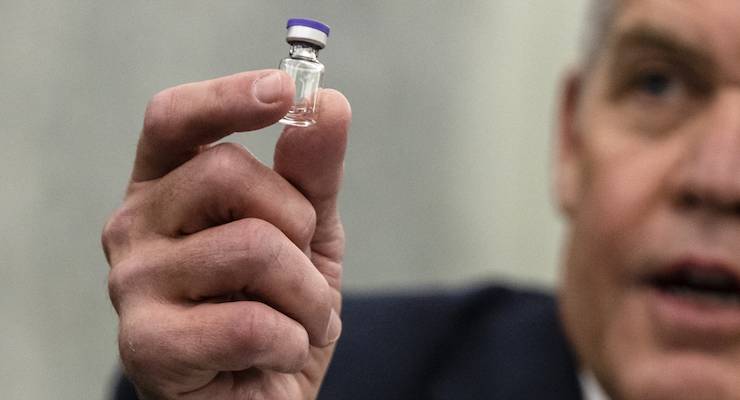
Pfizer’s COVID-19 vaccine is being trucked to distribution centres across the US just days after it was approved for emergency use. In the UK this week 800,000 doses will be administered across 70 hospitals, starting with those aged over 80.
But the arrival of the vaccine has created a new set of questions for business and government: when should it be mandatory, and who will benefit from early access?
Government mandates
It’s pretty common for a government to force its populations to be vaccinated.
More than 100 countries have nationwide vaccine mandate policies for preventable diseases including diphtheria, tetanus and whooping cough. Of these countries, 62 have penalties for those who break the mandate rule. In Uganda, for example, parents can be jailed for not getting their children vaccinated.
Australia has some of the strictest rules, withholding three state payments for parents of children who are not fully immunised and don’t have a medical exemption.
But Australian National University research fellow in bioethics Dr Nathan Emmerich told Crikey that across developed nations, a COVID-19 vaccine mandate would be pretty rare.
“Governments could make a new law but it would be hard to see how it would be politically viable to do,” he said.
However, making a COVID-19 vaccine a condition of entry to a country is “pretty easy”. This has been done before with diseases like dengue fever. “You can slap [on] any conditions you like with a visa,” he said.
Qantas has already said that travellers will need a vaccine to fly internationally as part of the airline’s terms of service.
When it comes to citizens, under biosecurity laws the Australian government can compel people to be tested for diseases but can’t compel treatment, Emmerich said.
“You can’t demand your citizens take the vaccine or hold them down and force them … but you can say if you don’t have it, you have to pay for quarantine for two weeks.”
No jab, no job?
Emmerich said it was difficult for companies to demand staff to take a vaccine, unless the company could prove a worker couldn’t perform their duties without it. That could cover healthcare workers and international airline staff.
In Queensland, the government is considering mandatory vaccinations for state school students, teachers and staff. The Victorian Chamber of Commerce and Industry, and Aged and Disability Advocacy (ADA) Australia executives have said they’re considering mandates for workers.
Conversely, Facebook CEO Mark Zuckerberg told employees the company wouldn’t require them to get a COVID-19 vaccine to return to the office. Ticketmaster has also stressed it won’t make a vaccine a condition of purchasing tickets to events — leaving it up to event organisers to decide on what conditions people should be allowed in.
Will this create a new elite class?
In Australia, manufacturers will be able to sell vaccines privately as long as it’s been approved by the Therapeutic Goods Administration.
Those low down the priority list — the young and healthy, not working on the frontline — could jump the queue and buy a vaccine, though likely at a very high cost. This means wealthier Australians might be able to access privileges like international travel earlier than others.
The wealthy might also be better positioned to refuse the vaccine, Emmerich said. For example, even if unvaccinated children are barred from public schools, wealthier parents have the option of sending their kids to private schools or homeschooling them.
“You can have your beliefs, but it’s going to cost you,” Emmerich said.








Has liability for side effects or disablement been waived? If big pharma can put the vaccine you know where.
‘However, making a COVID-19 vaccine a condition of entry to a country is “pretty easy”. This has been done before with diseases like dengue fever.’
A vaccine for dengue – when?????
Just another example of why this country is truly Australia Felix – we have the good fortune/luxury of several tens of millions of roughly similar mammals acting as guinea pigs for the next 3 to 4 months before we need to decide how safe are the many different versions.
That time can also be used to consider the efficacy, if any, of the many proffered panacea.
The only way to contain highly transmissible diseases is via vaccination. Talk to anyone who has lived in a country which did not have mandatory vaccination and you may learn something. Your personal beliefs don’t override your responsibility to the community. The needs of the many outweigh the needs of the few or the one.
If you last sentence were generally observed it would upend society & the world economy.
Bring. It. ON!